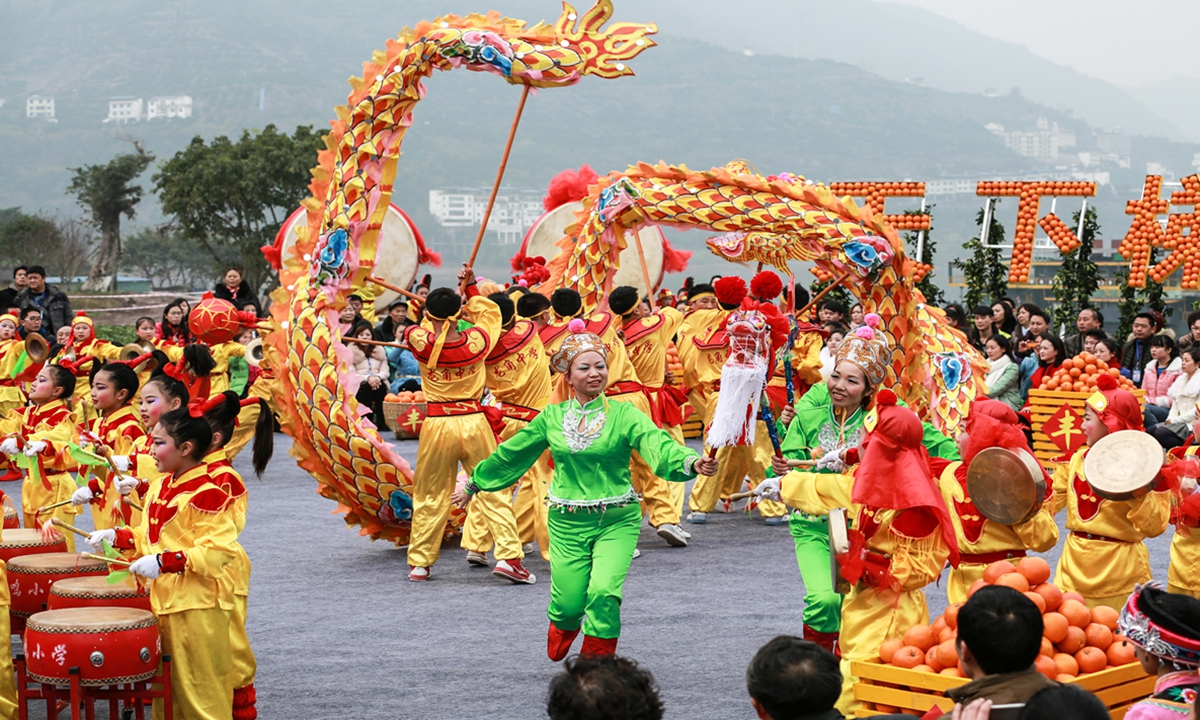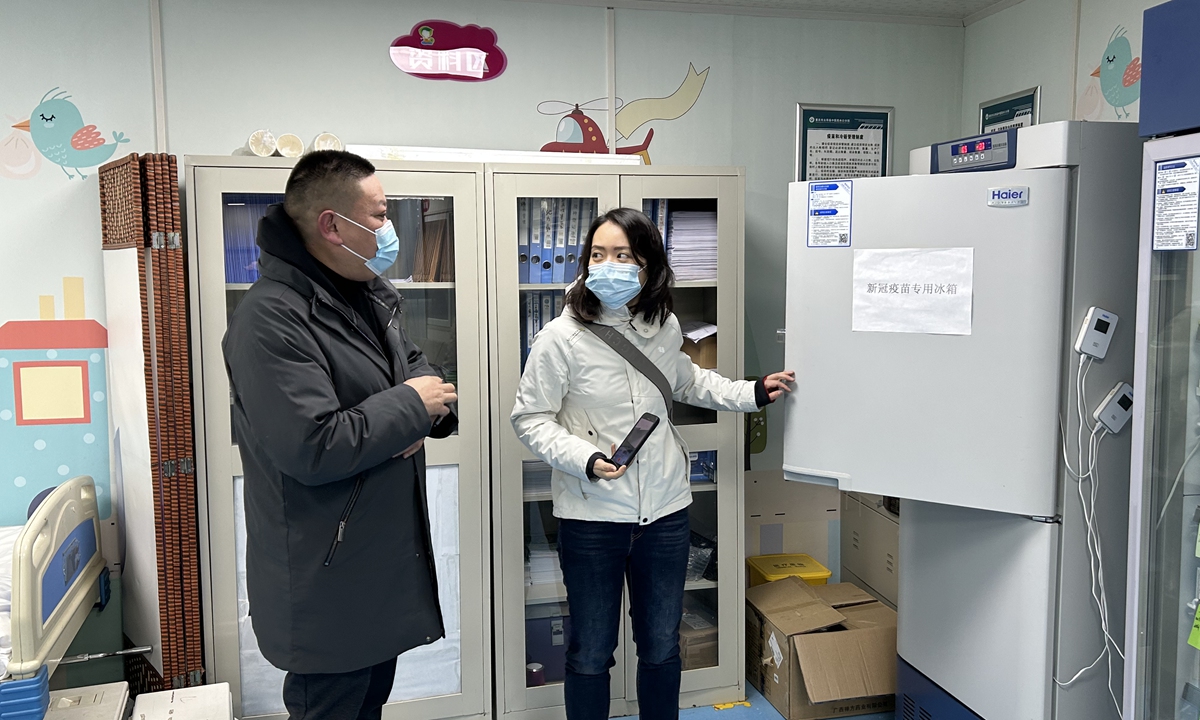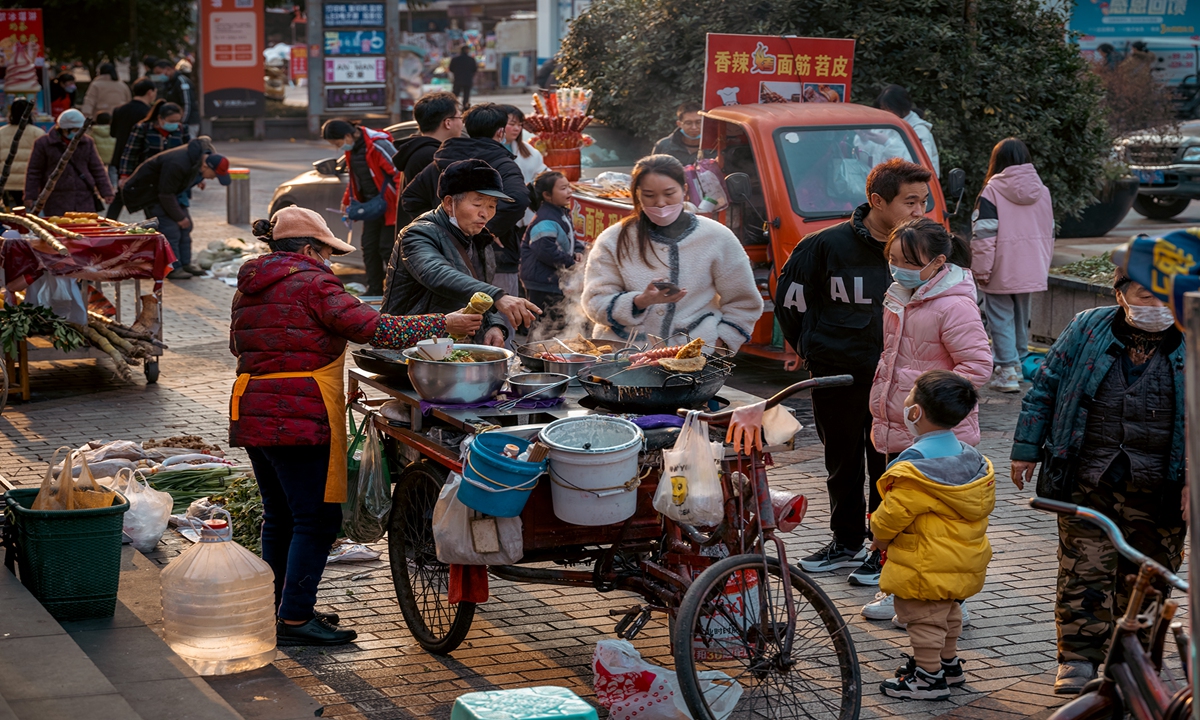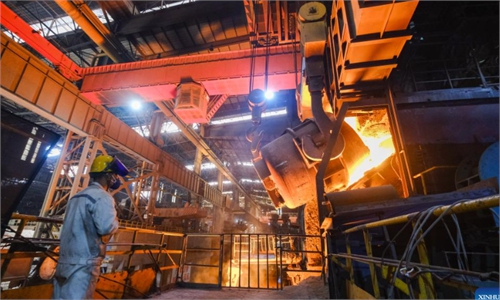Hometown Witness: warming reunions and growing vitality, a unique Spring Festival in a small Chinese county

Dancers perform dragon dance in Yunyang county, Chongqing on January 22, 2023. Photo: Courtesy of Wang Xiaoyong
It was only when I took out my phone at a gate in Beijing Capital International Airport, ready to scan health code but found no sign of the code, did I realize that days of COVID-19 restrictions were far behind us, despite the government had already downgraded the management of COVID-19 earlier this month.
I haven't seen the airport so full of people for three years. Two days before China's most important festival, the Chinese New Year [which falls on January 22 this year], the airport was crowded with luggage-dragging passengers, whose faces beamed with smile and excitement, hurrying to the departure gate, chatting on their phones in different dialects to inform their loved ones the time of arrival and being ready to return to their hometowns to celebrate with family the unique holidays, after the reunion was thwarted by COVID-19 for three years.
Those years absence of memories of spending the Chinese New Year in my hometown Chongqing made me forget how cold winter can be here. I was shivering with a mixture of coldness, excitement and sorrow when I saw my parents waiting for me at the airport parking lot.
It was a bittersweet feeling. Sweet was for the reunion, bitter was because my parents were aging so fast that it was visible to my naked eyes, thus nothing can make up for my three-year absence from the most important reunion of Chinese culture. But maybe it was also what made this Chinese New Year, the first one after China further optimized its COVID-19 response, carry more weight.
A homemade banquet dinner, which was prepared by the whole family across a whole day, greeted me when I arrived at Yunyang county in Chongqing, the place where I was born, to spend this year's festival.
Usually, people create all sorts of wishes when making toasts during Spring Festival dinners. But this year, it was all about "wish you good health," a most cherished and sincere wish from Chinese people, many of whom were recovered from the Omicron infections during the past month.
The topic about COVID-19, of course, dominated the dinner table. Family members discussed their experiences of fighting the virus, some showed mild or no symptoms, while some suffered much more serious symptoms. Those who suffered more were lectured by the rest of family to take more exercise and drink less alcohol. "Ebbing away of COVID-19 should also be a starting point, a new start we all learn to take better care of ourselves and cherish things we had long neglected," said one of my family members.
On January 22, the first day of Chinese Spring Festival, traditions in my hometown has it that people should climb mountains, symbolizing moving up step by step than previous year. People rubbed shoulders with each other at the steep and narrow stairs, and almost everyone had their masks on.
When I arrived at the mountain top, I was asked by a 30 something year old girl to take picture of her big family. When I returned her the camera, I said what a pity that the background was too crowded.
But she answered, "It is ok. I don't like taking pictures. I just want to capture the moment of family reunion. I haven't been home for four years due to the epidemic. Who knows when I come back next time?"

Global Times reporter Zhao Yusha talks with Doctor Wang Hailin in Shuikou township on January 23, 2023.
Making traditions count
However, not everyone has the luxury of celebrating this unique festival with families. As the rest of us are eager to shake off the shadow of COVID-19 restrictions, some are sticking to post to safeguard the bottom line of public health.
Wang Hailin, the head of a hospital in Shuikou township in Yunyang county, is one of them. Wang said many of his employees had not take holiday since October. "Before December 8 [when the government scrapped off mass nucleic acid test and allowed home quarantine of COVID-19 patients with mild or no symptoms], our staff were living in the hospital the whole day. After December 8, there came with the first wave of infection, we were busy in receiving patients and had no time to rest," said Wang.
The central government and health experts have been calling for rural areas such as Shuikou township, to prepare for possible cluster infections during Spring Festival holidays, as an influx of travelers swarm into those places with less developed medical systems.
Wang's hospital put in place an emergency plan of asking all employees to stand by 24/7 in case of a major outbreak during Spring Festival. "But there's no such huge outbreak currently and things are so much better than we previously estimated."
He told me that the number of COVID-19 infections had already ebbed away in this small town two weeks ago, and fever clinics receive fewer than 10 people per day.
A total of seven patients with severe COVID-19 symptoms were hospitalized in the hospital with 30 beds. The hospital also has abundant storage of medicines, including ibuprofen and China's domestically developed Azvudine, to cope with any possible mass infection in this small town.
Around December 22, 2022, the number of COVID-19 infections and visits to fever clinics across China reached their peak with new infections surpassing 7 million and visits to fever clinics reaching 2.87 million on a daily basis, and the number of deaths reached a daily peak of 4,273 on January 4, according to a report published by the Chinese Center for Disease Control and Prevention on Wednesday.

People buy street snacks in Yunyang county, Chongqing Municipality on January 22, first day of Chinese New Year. Photo: Courtesy of Hai Feng
A peek into a vibrant economy
Western media has always portrayed the three-year COVID-19 restrictions as big disruption of China's economic and social activities. But in Yunyang, a small town and home to roughly 1 million, the dazzling changes during the past two years had me once again feel the vitality, resilience of Chinese economy, despite the effect of COVID-19 shadow.
A brand new shopping center emerges near riverside of the county, and during the past two years, trendy cafes, high-end supermarkets, fashion brands fell over each other to rent commercial space. A railway connecting this county to Beijing opened last year, making the trip to the capital, approximately 1,600 kilometers away, only seven hours ride.
Zhou Tao, who co-founded a local rice noodle brand, told me that he opened three shops in this small city last year, even "everyone told me that the COVID-19 control will impact my business." But, the city's government stamped out every small outbreak in the past year very quickly. "My business stay basically unscratched," said Zhou.
He said during Chinese New Year, because many people returned home this year, his business boomed. An employee in his shop said they can sell several hundreds of bowls rich noodles per day, several times more than usual.
The optimization of COVID-19 control unleashed pent-up demand of consumption nationwide. Data from online travel agency Trip.com Group points to a surging demand for Spring Festival travels and sightseeing. Reservations for domestic group tours during the holiday, for instance, registered a yearly increase of 354 percent as of January 15.
Zhou said the optimization brought a new start for his business as he is set to open new rice noodle shops in nearby cities, immediately after the Spring Festival holidays.
Fireworks, which is another Chinese New Year tradition that were originally used to scare away evil spirits, has becoming more-than-usual popular during this year's Spring Festival holidays.
I visited a designated firework spot on the Chinese New Year's Eve. The multi-color and creatively patterned fireworks, coupled with people yelling, lit up Chongqing's cold, dark winter night. Some people were shouting, "Happy [Chinese] New Year, COVID-19 goes away!
One of my friends posted pictures of the firework with words: "May the most spectacular fireworks in my life dissipate all the unhappiness in the past three years; may they take away all the uncertainties and fears brought by COVID-19 and usher in a new year with love, gratitude and hope."


